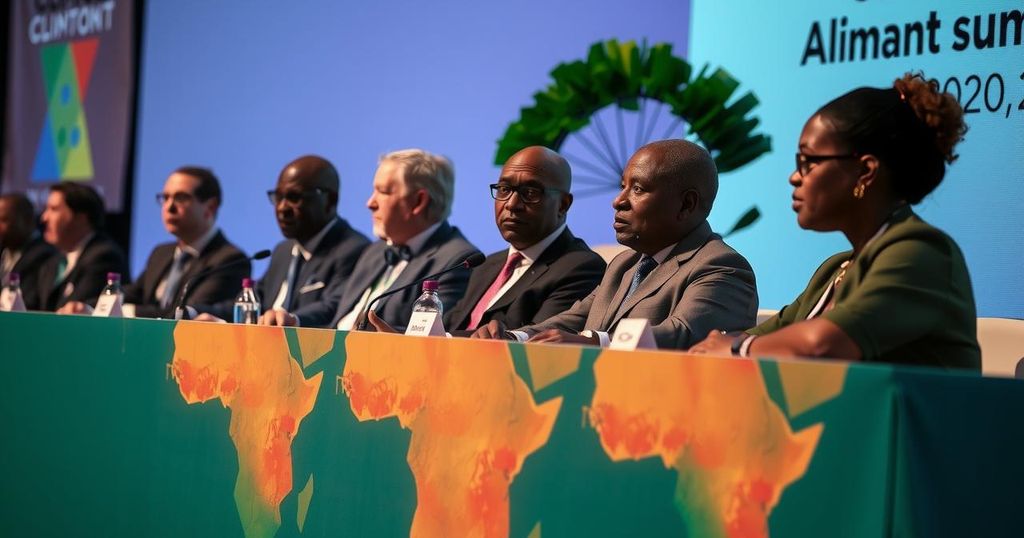COP29 concluded with a commitment of US$300 billion annually in climate financing from developed countries to support developing nations, a figure that is woefully inadequate compared to the US$1.3 trillion needed by African nations to deal with climate change impacts. Key issues included the insufficient funding, lack of clarity on funding sources, and significant fossil fuel lobbying that undermined the negotiations. Looking forward, Africa must use its mineral resources as leverage to obtain necessary climate finance in future negotiations.
The recent COP29 climate conference led to a commitment of US$300 billion annually from developed nations to assist developing countries with climate adaptation and mitigation initiatives. Nonetheless, this figure significantly falls short of the US$1.3 trillion needed to effectively address climate challenges. African nations entered the negotiations seeking substantial support to combat climate impact, but the consensus reached was deemed inadequate, raising concerns about the future of climate financing for these vulnerable countries.
At COP29, developed countries collectively agreed to a new climate financing goal that includes US$300 billion per year by 2035 for all developing nations. However, this amount does not align with Africa’s urgent needs, especially given that rising inflation could diminish its real value over the years, further complicating efforts to combat climate change and its adverse effects. Furthermore, the unclear nature of the funding—whether it will come as grants, concessional loans, or investments—adds to the uncertainty surrounding the debt implications for African nations already struggling with financial burdens.
The negotiations faced several obstacles, including significant participation from fossil fuel lobbyists who diluted climate commitments, and geopolitical uncertainties that shifted focus away from climate priorities. These factors, coupled with Azerbaijan’s focus on fossil fuel interests as the host country, further hampered the negotiations aimed at robust climate financing for Africa.
Looking forward, the establishment of the “road to Belém” initiative suggests that climate finance discussions will continue at future conferences. African nations must leverage their mineral resources—sought after for energy transitions—as a bargaining chip to secure necessary climate adaptation funds. This strategy is crucial to transform climate talks into actionable commitments that effectively address the impending climate crisis, rather than mere discussions without tangible outcomes.
The COP29 climate conference, held in November 2024, was a critical event for discussions on global climate finance between developed and developing countries. The commitment made by wealthy nations for US$300 billion annually for climate support is substantially less than the projected US$1.3 trillion required yearly to help developing countries, particularly in Africa, mitigate and adapt to climate change. This discrepancy highlights ongoing concerns regarding the adequacy of international climate financing in addressing the urgent needs of developing nations disproportionately affected by climate change.
In conclusion, the outcomes of COP29 have left African nations unsatisfied, as the commitments made fall short of their significant financial needs to combat climate change effectively. The importance of stronger negotiating strategies and leveraging resources is emphasized if African governments aim to secure necessary funding in upcoming discussions. The stakes are high, and there is a compelling need for transformative action rather than continued dialogue without results.
Original Source: theconversation.com






